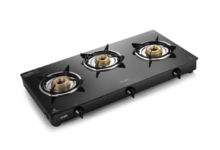
Septic Tank vs Cesspool: What’s the Difference?
Wastewater management has remained a prevalent topic throughout the ages. Its impact on human health and the environment weighs large and has presented societies with challenges since the days of ancient Babylonia.
So before you take the plunge to buy or build that house, it’s vital to know the differences between a septic tank vs cesspool and the costs of maintenance associated with each.
Keep reading to learn about the differences between these two waste management systems and discover which one is truly right for your home.
Table of Contents
Septic Tank vs Cesspool
Though both mechanisms act similarly to collect a home’s wastewater, they use different processes. The cesspool is an old technique, and many have since been converted to septic systems.
What Is a Cesspool
A cesspool is a cylindrical tank made of brick or concrete buried under the ground. This tank is where all of a home’s wastewater and anything that goes down the drain gets deposited.
Cesspools only have one single inlet pipe for sewage to go in and no outlet pipe, as they are not intended to treat the wastewater, only act as storage units for it.
What Is a Septic Tank
A septic tank has an inlet pipe as well as an outlet pipe. Like cesspools, your home’s wastewater gets deposited into this chamber, where it forms three separate layers: sludge, liquid, and scum.
While the solid waste remains in the tank, the wastewater can leave the tank to enter a second compartment. The solid waste, or sludge, is then treated by the natural microbes.
In the second compartment, further microbial treatment happens before this treated water exits the chamber through a pipe containing holes, then disperses into the soil.
Should I Install a Cesspool or Septic Tank?
The main difference between a cesspool vs septic tank is that the latter treats the wastewater to be leached back into the ground. On the other hand, a cesspool is only a holding tank that collects and stores waste.
To keep a cesspool operating properly, you need to be sure to pump your tank regularly. That ensures that the contents of the chamber don’t overflow or possibly back up into your home’s plumbing.
How often you should empty a cesspool will depend on the frequency of use and the size of the cesspool. That can end up costing a lot more time and effort to maintain than a septic system.
For these reasons, cesspools are no longer popular options today, and many consider them outdated. Instead, septic tanks are the safer and recommended option for most modern households.
Whether you have a cesspool or septic tank, they both need “de-sludging.” However, you only need to de-sludge your septic tank annually – unlike cesspools, which you may need to de-sludge on a weekly or bi-weekly basis.
A full septic tank could also cause wreak havoc if left untreated, so it’s essential to maintain your septic system. Indicators that your tank is full may include a foul-smelling odor and waste coming out of the drains.
Don’t Waste Your Time With Cesspools
When debating septic tank vs cesspool, the benefits of a septic tank far outweigh those of a cesspool. Septic systems are a cost-effective, eco-friendly option that can last up to thirty years when maintained properly.
Did you find this article helpful? Then check out the Home Improvement section of our blog for more great tips in homeowning!








